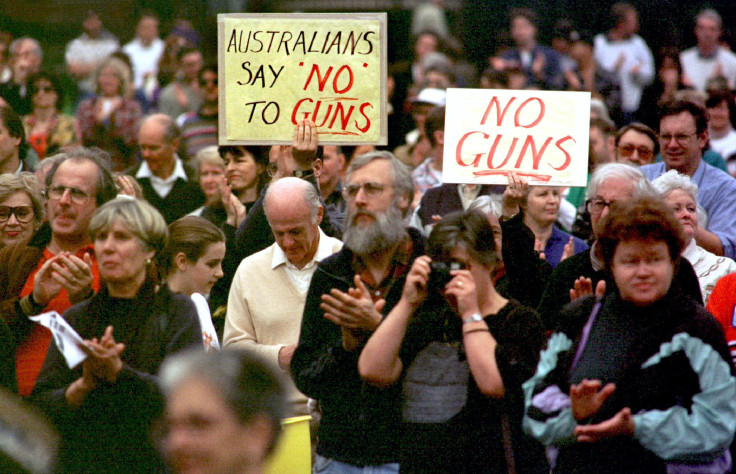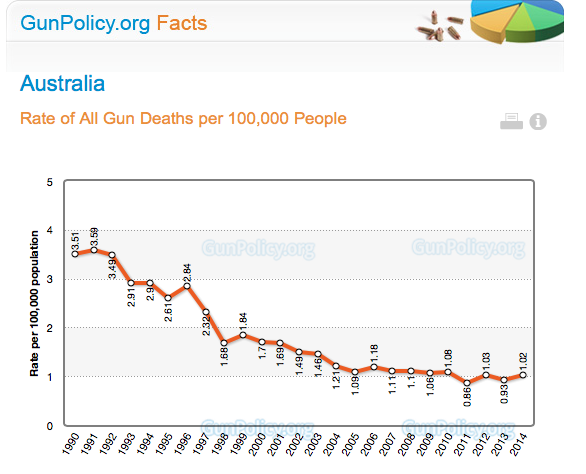Gun laws in Australia vs America: Expert says claims that gun bans increased other types of crime in Australia is ‘red herring argument’

It’s been almost 20 years to the day since the Port Arthur massacre, which changed Australian gun laws completely. But two decades on and former Prime Minister John Howard, who helped put the National Firearms Agreement into place, continues to be questioned about whether Australia’s ban on guns has benefited the country.
In an interview with US broadcaster CBS’ Sunday Morning TV program, Howard was asked to comment on the current state of firearm laws in the US and compare them with Australia's legislation. He said Australia’s strict gun laws have provided "incontestable evidence" to other countries that the regulation of firearms can benefit a country.
“If you had 13 shootings before Port Arthur and you had none since, isn’t that evidence?” he said, pointing to the country's lack of mass shootings since 1996.
His statement was a challenge to critics who say that while instances of gun-related crimes have decreased in Australia, there has been a rise in other forms of crime as individuals look for new ways or methods to inflict violence.
In January, US Presidential Candidate Ted Cruz said in an interview that the rate of sexual assaults and rapes in Australia rose significantly after the gun buyback program “because women were unable to defend themselves”.
However, Cruz’s statement has been proven to be unfounded, with several statistics showing that while the rates of sexual assaults in Australia did increase after 1996, these statistics could not be directly linked to the buyback of 1996, according to Samara McPhedran, senior research fellow at Griffith University and chair of the International Coalition of Women in Shooting and Hunting.
The gun ban in Australia has also been questioned by some Australians, specifically the Gun Control Australia Organisation, who believe that while the ban has decreased instances of homicide, suicides and massacres across the country, it has created a new problem in which over 9,000 illegal guns are now on the black market. The organisation had also previously stated that since 2011, NSW sees an average of 20 drive-by shootings per month, possibly as a result of these firearms on the black market.
But claims that the banning of guns in Australia have increased crime rates are a “red herring argument”, Associate Professor and founding director of GunPolicy.org, Philip Alpers, tells International Business Times Australia -- one “only raised by those who can't bear the thought that fewer guns might mean fewer deaths”.
Pointing to his research, including a 2006 report on the success of Australia’s anti-gun laws, Professor Alpers says Australia has been better off since the introduction of its gun laws in 1996, including no mass shootings since the Port Arthur Massacre, the event that spurred the nation’s buyback scheme.
He also challenged proponents who argue that an expanding black market is contributing to gun-related violence, pointing to stats that show the number of firearm related deaths in the country have fallen since the buyback scheme, from 516 deaths in 1996 to 312 in 1998, and 188 in 2011.

Statistics from the Australian Institute of Criminology (AIC) indicate a declining trend in the instances of firearm related homicides from as early as 1969, and in 2003 there were less than 16 percent of gun-related homicides.
Furthermore, the buyback of firearms did not just create a large decrease in gun-related homicides since 1996, but as John Howard said in his recent CBS interview, also contributed to a 74 percent decrease in gun-related suicides.
“There is no evidence of displacement to other lethal means causing death” Professor Alpers concludes.
“Total Gun Deaths [and] Homicide (any method) has gone down, not up.”





















